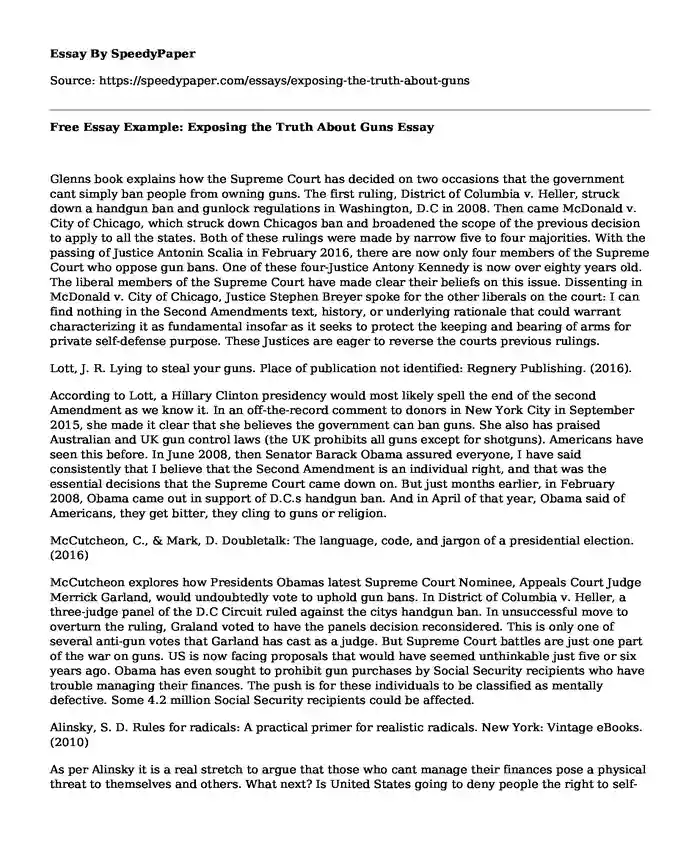
How to write an expository essay: guide, topics and samples
Expository essays are a typical assignment for high school and college students. Still, many learners struggle with this particular type of paper. They have many questions but can never get the professor to answer them. This is why a vast majority of students search for writing help online to craft a flawless assignment. Most students do not hesitate to get professional and quick essay help with challenging assignments, while others are desperate to accomplish the project independently. Are you goal-oriented and ambitious? Do you want to expand your vision and master skills? So today we will cover the frequently asked questions and share our knowledge to help you write an expository essay worthy of an A.
What is an expository essay?
Many students believe that expository and argumentative essays are the same. These papers are indeed very similar. However, argumentative essays require more effort and time; they should be supported by credible sources and in-depth research. For these reasons, argumentative essays are usually assigned as capstone projects, whereas expository essays are typically used as short-term assignments or parts of the test. An expository essay will have the same structure and outline, as an argumentative one, but it will be shorter, and the research can be superficial.Expository essay types: things you need to know
Expository essays are essential to academic writing, as they aim to inform, explain, or clarify a topic clearly and concisely. There are several expository essays, each with a unique purpose and structure. But you should know how to write a good expository essay. So let's explore four common types of such essays.
Cause and effect essay:
A cause-and-effect essay explores the reasons behind a specific occurrence (cause) and the consequences or results that follow (effect).
Tip from SpeedyPaper:
Identify causes, link them to effects, and use logical organization.
Compare and contrast essay:
A compare and contrast essay examines the similarities and differences between two or more subjects.
Descriptive essay:
This type of expository writing paints a vivid picture of a person, place, object, or event. The goal is to make the reader feel like they are experiencing the subject firsthand.
Problem and solution essay:
A problem and solution essay identifies a specific issue or problem and proposes one or more viable solutions. As you can see, understanding the different types of expository writing assignments is crucial for students to develop their writing, critical thinking, and analytical skills.
Which topics are appropriate for expository essays?
If an expository essay is assigned as a part of the test or an in-class writing exercise, the prompt is usually provided. However, if the expository essay is assigned as homework, the instructor might ask you to pick the topic on your own.The usual rules for choosing the essay topics apply to expository essays. The matter should be interesting to you and pertinent to the course you study. The subject should be narrow enough for you to cover in a standard five-paragraph essay format or any other length assigned. And now, check these good topics.
- The causes and effects of climate change on our environment.
- The impact of social media on mental health and interpersonal relationships.
- The benefits and drawbacks of using renewable energy sources.
- The sad story of Mark Twain.
- The role of education in reducing poverty and promoting social mobility.
- Comparing and contrasting the healthcare systems of different countries.
- The history and significance of a famous cultural or historical landmark.
- The influence of technology on modern communication and its implications for society.
- The effects of globalization on local economies and cultures.
- The problem of racism in Alan Paton's' Cry.
- Comparing and contrasting the leadership styles of two prominent world leaders.
- The process of creating and marketing a successful startup company.
- The role of music in different cultures and its impact on human emotions.
- The difference between monotheism and polytheism.
- Analyzing the factors that contribute to a healthy lifestyle and overall well-being.
- The challenges and solutions for preserving endangered species and their habitats.
- The history, development, and prospects of artificial intelligence.
- Exposing the truth about guns.
- Examining the causes and consequences of income inequality in modern societies.
- The role of women in different societies and how it has evolved.
Tip from SpeedyPaper:
Choose a subject that interests you and allows for in-depth research and analysis.
How to structure an expository essay?
Expository essays should have the same three parts, like any other paper: introduction, body, and conclusion. The introductory paragraph usually consists of an attention-grabbing hook, a couple of building sentences that lead to a thesis statement.
All main body paragraphs, whatever their quantity is, can be structured similarly. Each passage should have a topic sentence, which refers to your thesis statement, supporting phrases to cover the evidence, facts and statistics to back up your claims, and a concluding sentence that round up the idea of the paragraph and provides a transition to the next passage.
The conclusion usually requires you to restate the thesis, provide a summary of the main ideas covered by topic sentences of the body paragraphs and sum up the essay with one final thought.

How to write an expository essay like a pro?
Writing an expository essay like a pro involves several crucial steps, including prewriting and outlining, crafting an engaging introduction, developing well-structured body paragraphs, and providing a strong conclusion. By following a systematic approach, focusing on clarity and organization, and using appropriate evidence and examples, you can create an effective expository essay that effectively communicates your ideas and insights.
Prewrite and outline
Any student should know how to write an essay! Before you start writing your expository essay, engaging in the prewriting process is essential.
- Brainstorm your potential topics: Besides, you can check relevant expository essay example packs to stand out.
- Research: Conduct thorough research on your chosen topic to gather relevant information and supporting evidence.
- Outline: Create an expository essay outline that organizes your main ideas and supporting evidence logically and coherently.
Tip from SpeedyPaper:
Create a structured plan with an introduction, body paragraphs, and conclusion.
Write an introductory paragraph
The introductory paragraph is a critical component of your expository essay, as it sets the tone and context for the rest of your paper. Follow these steps to craft an engaging introductory paragraph:
- Begin your introduction with a hook.
- Provide some context and background information on your chosen topic.
- Conclude your introductory paragraph with a clear thesis statement.
Write three body paragraphs
The body paragraphs of your expository essay are where you will develop your main ideas, present evidence, and analyze the topic in depth. Typically, an expository essay will have at least three body paragraphs, each focusing on a specific aspect or point related to your thesis. To write effective body paragraphs, follow these guidelines:
- Begin each paragraph with a topic sentence that clearly states the paragraph's main idea.
- Provide relevant and specific evidence to support the main idea of each paragraph.
- Analyze the evidence and explain how it supports your main idea.
Tip from SpeedyPaper:
Use topic sentences, evidence, and analysis to support your thesis in each paragraph.
Write a concluding paragraph
The concluding paragraph of your expository essay should summarize your main arguments and provide a sense of closure. To write an effective conclusion, follow these steps:
- Restate your thesis;
- Summarize your main points;
- Closing thoughts.
Revise and proofread
Once you have completed your initial draft, revising and proofreading your expository essay is essential to ensure it is polished and error-free. Follow these steps to refine your essay:
- Revise for content;
- Revise for style;
- Proofread for errors.
Solid expository essay examples
Each expository essay example is crucial in understanding how to craft a well-structured expository essay. To help you get started, consider reviewing various expository essay example packs to gain insights into effective organization, style, and content.

Writing tips for crafting an effective expository essay
Understand the purpose and audience
In writing, especially when dealing with expository essay topics, knowing your purpose and audience is crucial. Understand what your readers expect from your essay and what insights they seek.Organize your ideas and structure
Creating an organized structure helps in conveying your ideas more clearly. Before writing, create an outline representing your main ideas and supporting facts.Master the art of clarity and conciseness
Mastering the art of clarity and conciseness is essential. Readers always appreciate an easy-to-read expository essay. If writing proves challenging, you can explore the option to buy essay online.Conclusion
Students can choose any topic provided as a starting point for their expository essay. Our guide is designed to assist you in writing a compelling and well-structured piece. Additionally, our website offers guides for other essay types, such as informative essays. Besides, you can even check how to write an informative essay on this website! And if you need professional assistance, SpeedyPaper can complete any academic work within the required time frame, ensuring quality and timely delivery.




Comments (0)
Thank you for your comment! 🌟
It has been submitted and is awaiting moderation. Stay tuned—it will be visible soon!